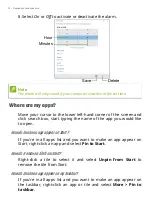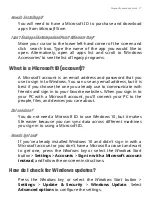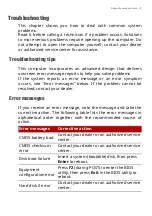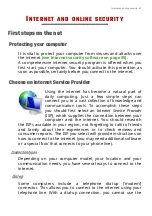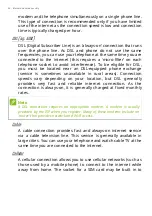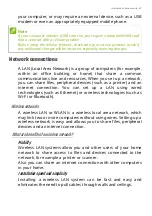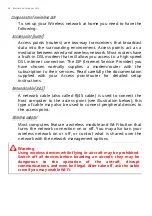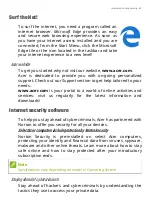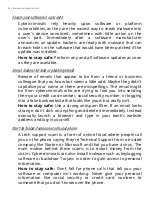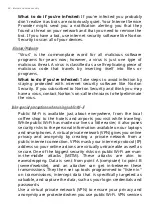
86 - Internet and online security
Ensure your software is up to date
Cybercriminals rely heavily upon software or platform
vulnerabilities, as they are the easiest way to sneak malware into
a user's device unnoticed, sometimes with little action on the
user's part. Immediately after a software manufacturer
announces an update, hackers are ready with malware that can
breach holes in the software that would have been patched if the
update was installed.
How to stay safe:
Perform any and all software updates as soon
as they are available.
Keep a lookout for fake or phishing emails
Beware of emails that appear to be from a friend or business
colleague that you know but seem a little odd. Maybe they didn't
capitalize your name or there are misspellings. The email might
be from cybercriminals who are trying to fool you into sending
them your credit card number, social security number, or logging
into a fake bank website that looks like yours but really isn't.
How to stay safe:
Use a strong antispam filter. If an email looks
strange, don't click on anything and delete it immediately. Instead
manually launch a browser and type in your bank's website
address and log-in yourself.
Don't be fooled if someone calls your phone
A tech support scam is a form of online fraud where people call
you on the phone saying they're Technical Support from a trusted
company like Norton or Microsoft and that you have a virus. The
main motive behind these scams is to extort money from the
victim. Cybercriminals can also install malware such as keylogging
software or backdoor Trojans in order to gain access to personal
information.
How to stay safe:
Don't fall for phone calls that tell you your
software or computer isn't working. Never give your personal
information like social security or credit card numbers to
someone that you don't know over the phone.





